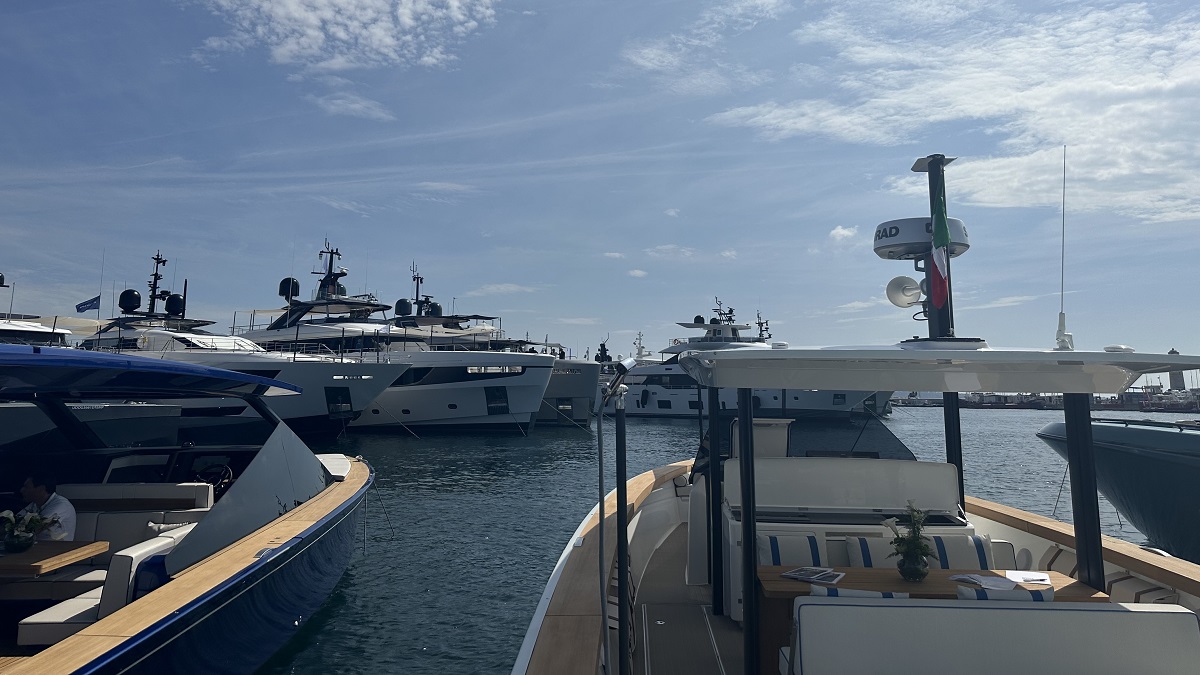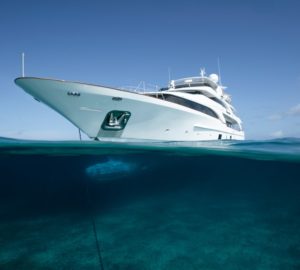There are many ways two own a yacht. The most simple is direct ownership, the same way you’d own a car or other asset.
A yacht is more expensive than a car, and more in line with a house, airplane, or other complex and costly asset. Where wealth preservation, asset protection and privacy are a concern, simple ownership may not be your best option.
Other legal entities can hold assets for you, and a trust or a Limited Liability Company (LLC) are common alternatives to manage those risks. A trust is one of the most popular for very expensive yachts, but is it right for you?
IMPORTANT NOTE: Tax, estate, legal entity and other laws vary between countries, and even between states and regions in the same country. Always consult with a lawyer and accountant before making complex financial decisions.
What is a trust?


A trust is a legal entity that has separate and distinct rights. It can act independently, like a corporation or a person, but gives some protections to assets placed in a trust. Often, trusts are used to separate assets financially from an individual’s principal estate. This gives distinct protection from taxes, creditors, and other risks, while also allowing the owner to direct the assets..
Trusts are legal structures created from documents drawn by attorneys and registered with the government. All trusts must have at least one trustee to manage them and meet specific legal filing and reporting requirements.
Parties in a Trust
All trusts have a beneficiary, a trustee, and a trustor or settlor, who puts the assets into the trust. The beneficiary receives the benefits of the trust, whether it’s income or use of assets as defined by the trust. The trustee manages the trust and executes all actions and decisions for it.
A typical example is trust for an inheritance to a minor, who is the beneficiary. An adult trustee manages the trust for the benefit of the child, and the trust provides for the child and protects the assets until they reach a responsible age.
Depending on the structure, the beneficiary of a trust can be the same person who put the assets in initially. The trust’s jurisdiction may permit a beneficiary to serve as a trustee as well.
Types of Trusts
There are several trust options one can use, depending on your needs. Trusts are revocable or irrevocable. The revocable trust allows breaking or amending, changing trustees, and moving assets back out. An irrevocable trust is difficult to end or alter until the conditions of the trust are met (usually the death of the trustor and/or primary beneficiary), and it is impossible for the trust creator to get any assets back in their lifetime.
A living trust is often used to hold assets during the trustor’s lifetime, but other types of revocable trusts can also hold a yacht. Irrevocable trusts for yacht ownership are less common because of the inflexibility of such arrangements.
Read also: IS BUYING A BOAT A BAD IDEA?
Why are trusts usually used for?


Though they sound complex, trusts are valuable tools for several personal and financial objectives. The choice of trust and the details of its structure will depend on your exact needs, and some benefits can be combined.
Increasing privacy
An asset owned by a trust adds a certain level of privacy, because the ownership on all documentation and paperwork is the name of the trust, not the individual.
For example, anyone can use free public websites to look up ownership information on a U.S. Coast Guard documented vessel. It lists basic information like the owner’s name and address. But if the owner is a trust, the search shows trust information, not the beneficiary’s private data.
Trust assets are not owned directly by the beneficiary, so they may not need to be reported or disclosed. It depends on the laws and reporting rules in your area, so talk to your trust attorney.
Asset separation and protection
When ownership moves from an individual to a trust, so do associated financial connections and liabilities. It should protect assets in trust from personal creditors and liabilities, and liabilities created by the trust should not pass on to the beneficiary. The trust also ensures that assets can have their own insurance policies and financial instruments with separate limitations from the trustor and beneficiary.
Sometimes, a trust can reduce the overall estate size of the person placing the assets in trust. Since the trust now owns the assets, they move off the trustor’s personal balance sheet for many legitimate financial purposes.
Estate planning to avoid probate
Avoiding probate completely is difficult, but a trust can simplify and speed up the process with proper planning. You can transfer trust assets quickly to new beneficiaries who can enjoy them sooner without a long process.
Easing probate is one of the leading reasons for using trusts. Not only for yachts, but other assets as well.
Tax mitigation
While the laws vary widely from country to country, trusts are often used to lower exposure to certain types of taxes, like estate taxes. Because assets move out of direct individual ownership, they rarely count as part of the larger primary estate. Though the trust may have other tax implications of its own.
The pros of a yacht trust

With the right legal structure and plan for your estate, a yacht trust can be an enormous benefit. You can save on taxes, offload liability, and efficiently manage and disperse your estate to your heirs exactly the way you want it done.
A trust can manage inheritance
Streamlined inheritance of assets is one of the big drivers to create a trust. If you have a large estate and want to avoid estate taxes and probate, using a trust is a great way to minimize risk and ensure your assets pass on to the next generation. A properly funded trust can protect the yacht from being sold because of inheritance tax or other issues, so your heirs can benefit from it.
A trust and a holding company (LLC) can increase privacy and reduce liability
The trust alone isn’t the only tool you can use to keep your assets private. A limited liability corporation can protect you from personal liabilities while managing your yacht. Coupled with an LLC, a trust is a powerful tool for privacy and risk management.
A trust and LLC combined may save significant taxes
In the right jurisdiction, a trust paired with an LLC can save you significant money on taxes. Not only on estate taxes; with the right flag it can reduce operational taxes such as payroll taxes for crew with the right ownership structure.
Complex ownership structures increase asset protection
While you always hope it never comes to it, assets owned in trust and with LLCs are isolated from personal liabilities. If you ever are the target of a lawsuit or legal action, the trust can lock away certain assets from any personal financial liability you may incur. It is difficult to apply liens or seizures to assets you do not directly own.
Read also: Yacht crew positions : Hierarchy, Missions & Salaries explained
The downsides of putting your yacht in a trust

While trusts are very common for owning yachts, there are many reasons everyone doesn’t use them. They are not a one size fits all solutions, and they won’t work wonders for you without a good plan.
Trusts are complicated and expensive to set up and maintain
Trusts need lawyers. You can’t really create a trust without one. To remain compliant with changing laws, trusts must report regularly and pay legal fees each year. They usually require separate tax returns, and may incur additional costs for accounting.
A trust also adds an additional layer of process when you need changes. The trustee must be involved in disbursements and expenses, and adding or removing assets may get the lawyers involved again. Ongoing operations that involve expenses and payments aren’t as simple when trust assets are involved.
If you aren’t a high net worth individual or your yacht isn’t that expensive, it may not be worth the expense and hassle.
The wrong structure can be a nightmare
Picking the right trust is a job for your accountant and your lawyer, and it’s important to plan for all eventualities. Picking the wrong form of asset protection can paint you into a corner if your life doesn’t work out as you planned.
When making trusts and protective structures, you make certain projections based on how you see life working out. But something like an unexpected illness, bankruptcy, or death may leave you reaching for needed assets you can’t easily get to.
Not all countries are used to trusts
Outside the Commonwealth and the United States, many countries aren’t as used to trusts as asset owners. Depending on where you flag and register your vessel and where you travel, the trust ownership may cause problems and confusion. This may be as simple as a customs official giving our captain a hard time clearing in, to confusion over taxes, imports, and duties.
Trusts alone do not always offer personal asset protection
Depending on the structure of your trust and the jurisdiction, you may not have as much protection as you think. If you’re the beneficiary and the owner/operator during an accident, for example, you may find a lawsuit still aimed at your personal assets.
You may need a more complex structure like an LLC to ensure that any debts or liability created by the yacht do not pass through to your personal assets.
Irrevocable trusts can’t be dissolved or revoked
Consider any assets placed into an irrevocable trust to be completely gone to you for the rest of your life. You can still use and benefit from them, but you can’t easily sell them and remove the proceeds. Yacht ownership requires flexibility, which most irrevocable structures don’t offer.
Creating a trust may be a taxable event
Moving an asset from personal ownership to trust or corporate (LLC) ownership may be viewed as a taxable transfer in some jurisdictions. Whether it’s flagged as a gift or a sale, moving ownership of a large asset is the type of transaction local governments may try to tax. Paying sales tax on a yacht to own to move it to a trust you manage is not something you want to incur.
If you use an LLC for asset protection, it may come with its own taxes and reporting obligations. So it’s critical to know what you’re getting into.
Read also: How to staff your yacht ?
Our advice on having your yacht on a trust

There is no single answer that fits everyone for complex financial decisions like this. But there is one piece of advice that does apply to every yacht owner. Always discuss your situation with your attorney and accountant and heed their guidance.
A trust may not be necessary if your life situation is not complex enough to justify the cost and hassle. But if you have concerns anyway, seek professional advice. It’s worth spending the money on legal and financial expertise even if you don’t go forward with a trust. Tax and estate laws are complex everywhere, and you don’t want to make a mistake.
Your trust will need to be funded, including funds for maintaining the ownership costs of your yacht. It does your heirs no good if the trust has to sell the yacht to cover expenses or mortgage payments because there is no money in the trust to support the asset. Though most trust structures allow additional movement of assets and money in, funding is an important part of planning.
A trust may be a good idea for you if…
- Your net worth is high enough to trigger estate taxes in your home country.
- It’s important that your heirs get your yacht without probate delays and expenses.
- Separation of a yacht from your other assets gives you needed financial protection.
- The added operating cost and complexity of operating a yacht from a trust aren’t a burden.
And a trust might make little sense if…
- Your passing will not trigger estate taxes.
- The yacht isn’t a high value relative to the costs of operating a trust.
- Your estate is reasonably simple and addressed by your will.




